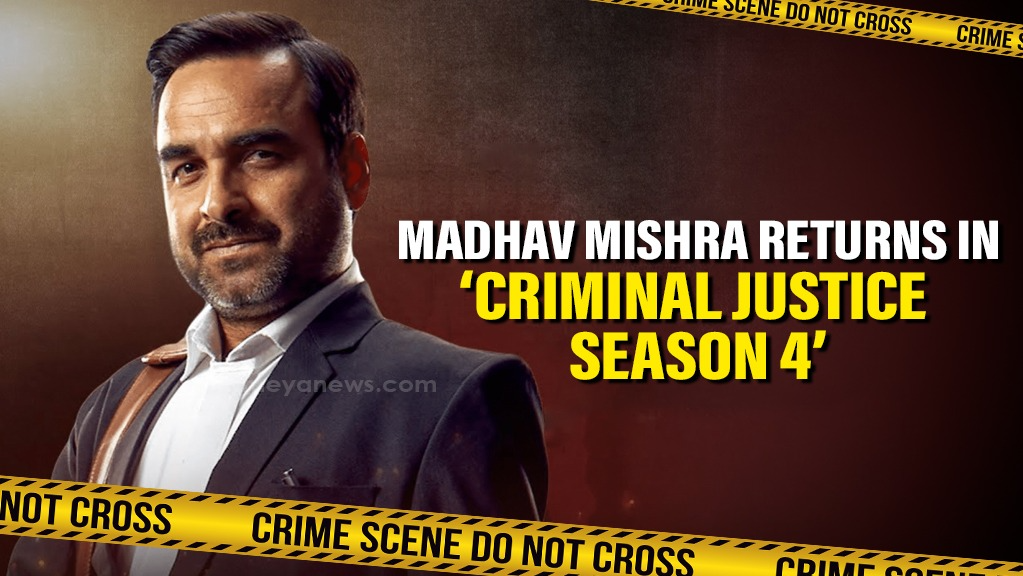

"Criminal Justice: Season 4" Delivers Engaging Drama and Performances
The fourth season of the acclaimed series "Criminal Justice" has made its debut, largely successfully employing the familiar and effective formula that has defined its Indian adaptation. Loosely adapted from Peter Moffat’s 2008 BBC series, the Indian version has progressively found its unique voice. This latest eight-episode installment offers a compelling narrative replete with misdirection, intricate layers, and numerous surprises, effectively capturing the linguistic and cultural dichotomies of its Mumbai setting, particularly between the Marathi-speaking police force and the Hindi-speaking central family.
The Nagpal Family's Ordeal
At the heart of this season's mystery is the Nagpal family. Raj, portrayed by Mohammed Zeeshan Ayyub, and Anju, played by Surveen Chawla, are a couple living separately but not divorced, co-parenting their teenage daughter Ira, who has Asperger’s Syndrome. Raj’s elderly mother, Gurmeet, also forms part of this household dynamic. Despite their separation, Raj and Anju reside in flats opposite each other in the same building to facilitate their co-parenting. Roshni (Asha Negi), a nurse assisting with Ira’s care, has become an integral part of the family and, more significantly, Raj’s life. This unconventional arrangement appears to be accepted by all, including Anju and Raj’s mother.
However, this delicate equilibrium is violently disrupted when Anju and the family maid, Kamala, discover Raj holding a bloodied Roshni, seemingly trying to save her. Roshni succumbs to her injuries, and Raj immediately becomes the prime suspect. In desperation, Anju turns to the trusted and astute lawyer, Madhav Mishra, once again brought to life by Pankaj Tripathi, setting the stage for a complex legal battle.
Strong Performances
The performances are a cornerstone of the season's engaging quality. Pankaj Tripathi, as Madhav Mishra, is characteristically effortless. His deadpan humor, mastery of "shuddh" Hindi, and composed courtroom demeanor continue to define the show's identity. His domestic scenes, particularly interactions with his wife and brother-in-law, provide charmingly realistic interludes that ground the series amidst the intense crime narrative.
Mohammed Zeeshan Ayyub effectively portrays Raj Nagpal's inner turmoil as a man whose life unravels unexpectedly. Asha Negi delivers a subtle and impactful performance as Roshni. However, it is Surveen Chawla, as Anju, who arguably delivers the most memorable performance. She navigates her complex role with remarkable control, conveying a spectrum of emotions without resorting to melodrama. Shweta Basu Prasad also impresses as Lekha Agastya, the sharp and determined prosecuting lawyer.
Narrative Strengths and Minor Stumbles
A well-crafted whodunit excels in its ability to strategically lay clues, and this season generally succeeds in keeping the audience engaged and guessing. The focus on a family drama interwoven with a murder case inherently raises the emotional stakes, making it easier for viewers to invest in the characters and their fates. Director Rohan Sippy skillfully keeps the narrative on track, often re-energizing the plot with a timely twist or crucial reveal whenever the pace threatens to lag. The courtroom sequences, in particular, are noted for their freshness and effective pacing, with the distinct energies of the three key lawyers breaking away from common courtroom drama tropes.
Despite its strengths, the season is not without its imperfections. The pacing can feel indulgent at times, and some critics suggest the story could have been condensed into fewer episodes without losing impact. Certain subplots, such as those involving Ira’s drawings and visual cues, occasionally feel more like narrative devices than essential plot elements. While the police characters are depicted with authenticity in their speech and behavior, their scenes sometimes lack the anticipated grit and edginess of a crime drama. Additionally, a minor plot point concerning Madhav Mishra’s decision to leave the corporate law firm CLU, which he had joined in a previous season, is left somewhat unresolved and could have benefited from further explanation.
Nevertheless, Madhav Mishra remains the series' unwavering anchor. His composed and unfussy approach, even when faced with seemingly insurmountable odds, provides the show with its emotional and thematic backbone. He represents a unique and compelling legal protagonist.
Overall Verdict
"Criminal Justice: Season 4" successfully continues the franchise's legacy of delivering gripping legal thrillers. While it adheres to a familiar template, the storytelling this season feels refreshed, particularly through its deep dive into family dynamics amidst a criminal investigation. The strong ensemble cast, led by the consistently brilliant Pankaj Tripathi and a standout performance from Surveen Chawla, elevates the material. Though there are minor narrative detours and pacing issues, the season's strengths in suspense, emotional resonance, and compelling courtroom action make it a worthwhile watch for fans of the genre and the series. It effectively balances its whodunit core with a heartfelt exploration of human relationships under extreme pressure.